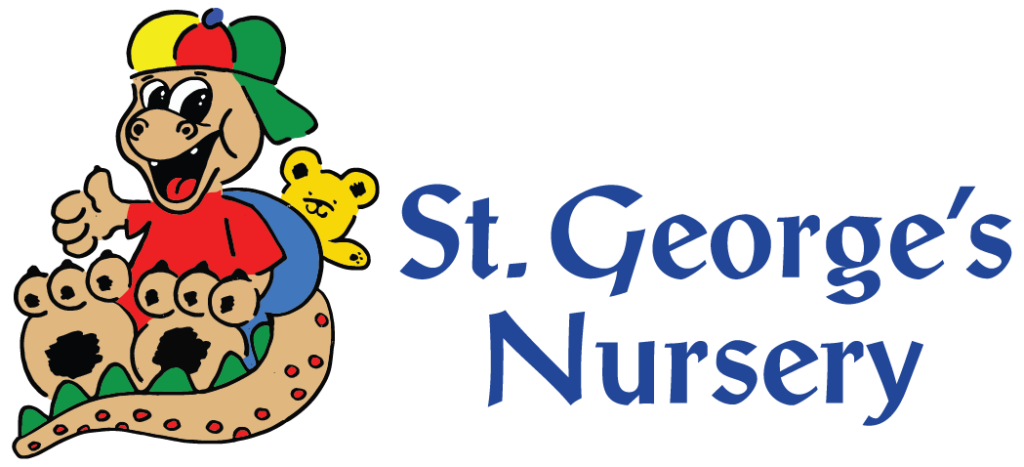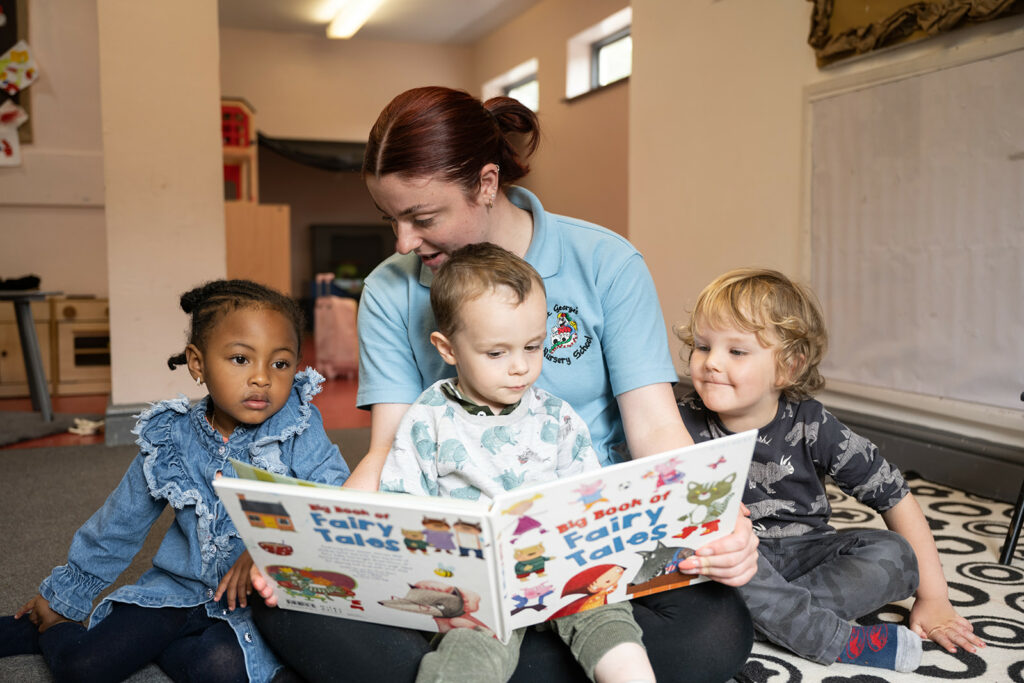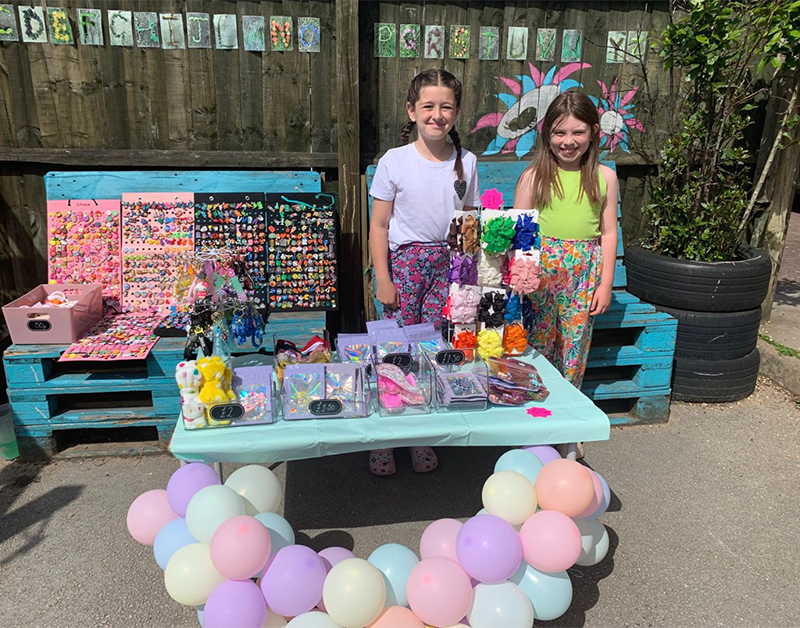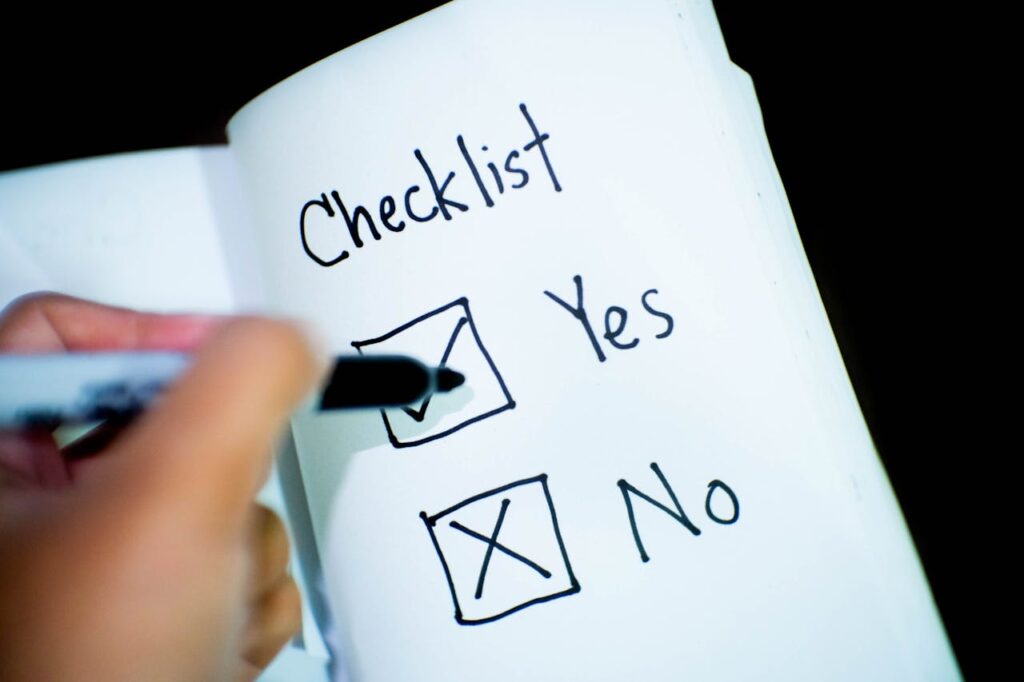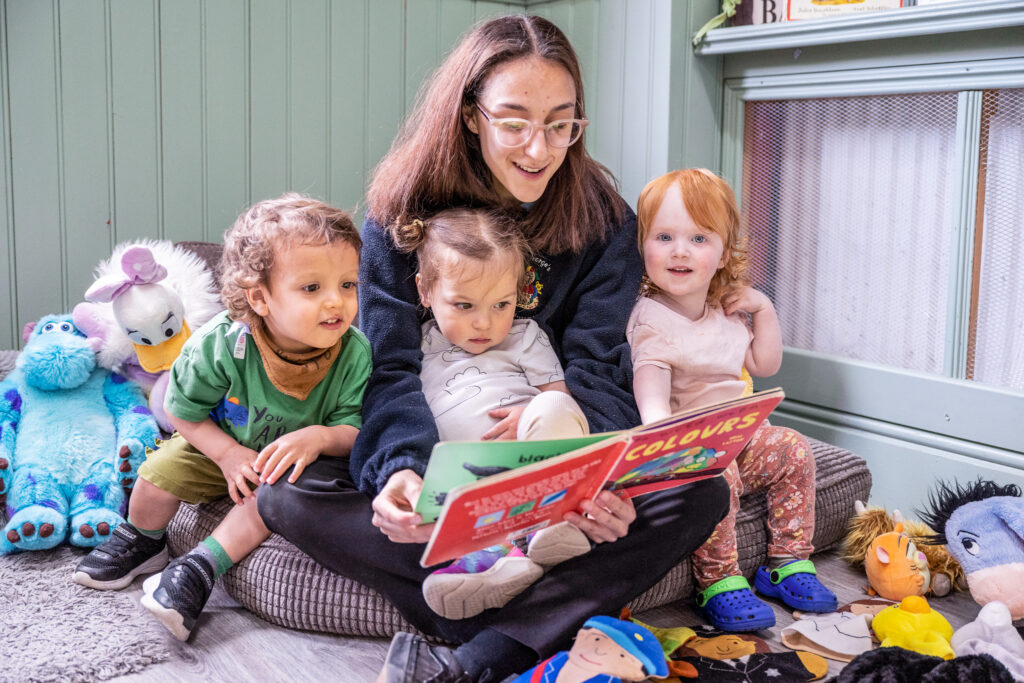Transitioning from nursery to school marks a monumental step in a child’s educational journey. While nursery lays the groundwork, the shift to formal schooling brings a new set of experiences and challenges. This transition can be a significant change, often presenting both excitement and potential hurdles for young learners.
Preparing Your Child For School with St. George’s Nursery
From their early years as toddlers, our nurseries engage in various activities to ease their transition into the next phase of learning at school. Fostering children’s emotional well-being, confidence, and self-esteem will help prepare them for the transition into school. Here are some practices we implement at nursery to promote self-esteem and confidence, to ensure your child is fully prepared to embark on their school journey.
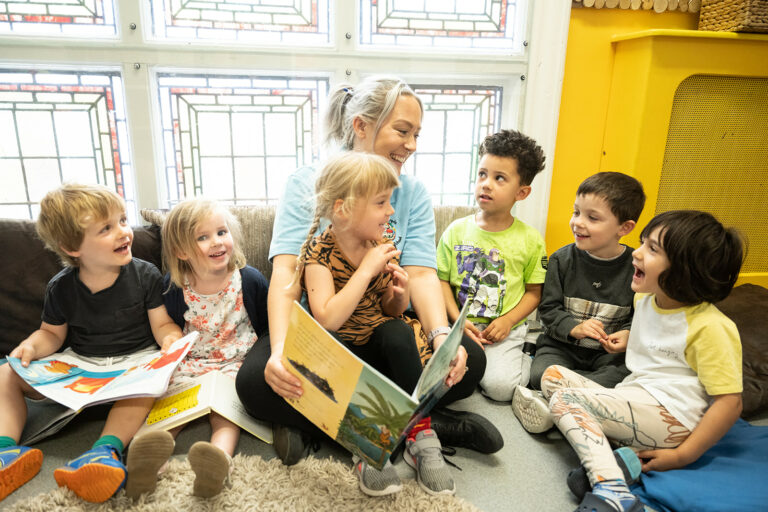
1. Self-Care & Self-Help Skills
We promote and foster independence at nursery, encouraging children to wash their own hands, using cutlery, putting their coats/shoes on themselves, etc. Children also serve their own meals during mealtimes and pour their own milk. We have also introduced self-help water stations to encourage drinking water from cups by themselves.
2. Toilet/Potty Training
We encourage the use of potty/toilets using story books, reward systems such as charts, stickers etc. We also give parents leaflets on toilet training with comprehensive information on do’s and don’ts.
3. Changing For Sports
Our older children are encouraged to change for their sports sessions, just as they would at school.
4. Activities
Such as Dough Disco and counting, activities which help children prepare for reading, writing and mathematics. We also promote taking turns, sharing with one another, and waiting for one’s turn, in order to enhance social skills and teamwork.
5. Taking Healthy Risks
We take as much learning as possible outdoors, which develops the children’s physical skills, and fosters a sense of wonder and curiosity about the natural world. This all helps with preparing children for school.
6. Visits from School Teachers
We receive visits from local schools to introduce themselves, speak to us about life at school and the transition to school.
7. School Role Play Activities
Role play activities by including school uniforms, bags, books, etc.
8. Parents meetings
We also conduct parents’ meetings to discuss the level of development for each child and how parents can also support with the next steps.
As a parent, you play a crucial role in preparing your child for this exciting journey of starting school. Here are some essential tips to help ensure your child is ready for school, both academically and emotionally:
Foster Independence & Establish Routine
Encourage your child to develop basic self-help skills like dressing, using the restroom, and washing hands. This independence will boost their confidence and make them more comfortable in a school setting. Create a consistent daily routine that includes a healthy balance of sleep, meals, playtime, and learning. Routines provide a sense of security and consistency, helping your child transition smoothly into the school environment.
Social Skills & Communication Development
School is not only about academics but also about building relationships. Help your child develop social skills by arranging playdates, participating in group activities, and teaching them how to share and take turns. Additionally, help your child develop effective communication skills by encouraging them to express their thoughts and feelings, listen actively, and follow simple instructions. Effective communication is crucial for success in the classroom.
Encourage a Love for Learning
Foster a positive attitude towards learning by engaging in educational activities at home. Read books together, explore nature, and participate in age-appropriate educational games. Make learning a fun and enjoyable experience. You should also introduce your child to basic concepts such as numbers, letters, colours, and shapes. Use everyday situations to make learning fun, such as counting toys during playtime or identifying shapes in the environment.
Develop Fine and Gross Motor Skills.
Fine motor skills, such as holding a pencil, and gross motor skills, like running and jumping, are essential for school activities. Encourage activities that develop both types of motor skills to ensure your child is physically prepared. Every child is unique and develops at their own pace. Be attentive to your child’s individual needs and strengths. Celebrate their achievements and provide support where necessary.
Visit The School
Take your child to visit the school before the first day. Meeting the teacher and becoming familiar with the surroundings can ease off any anxiety.
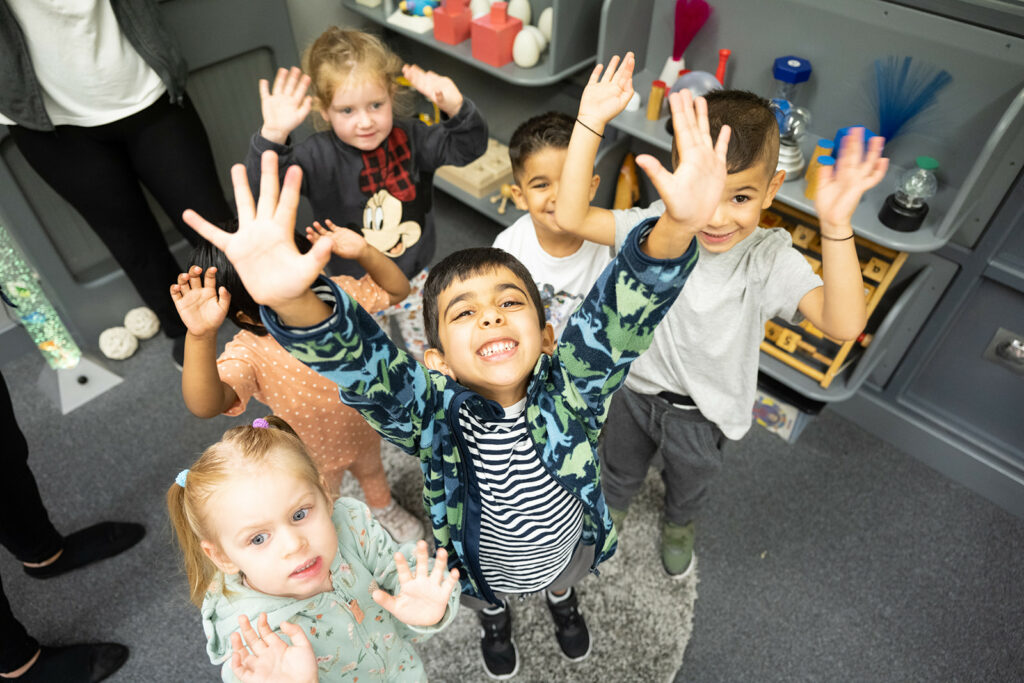
We want to make sure that your child is ready for school by the time they graduate from St. George’s Nursery. We offer thoughtfully designed activities in a supportive environment. Our qualified team is dedicated to building the skills and confidence necessary for a successful transition to formal education, making sure your child is well-prepared for the exciting journey that lies ahead.
Follow us @StGeorgesNursery to learn more about our nurseries.
